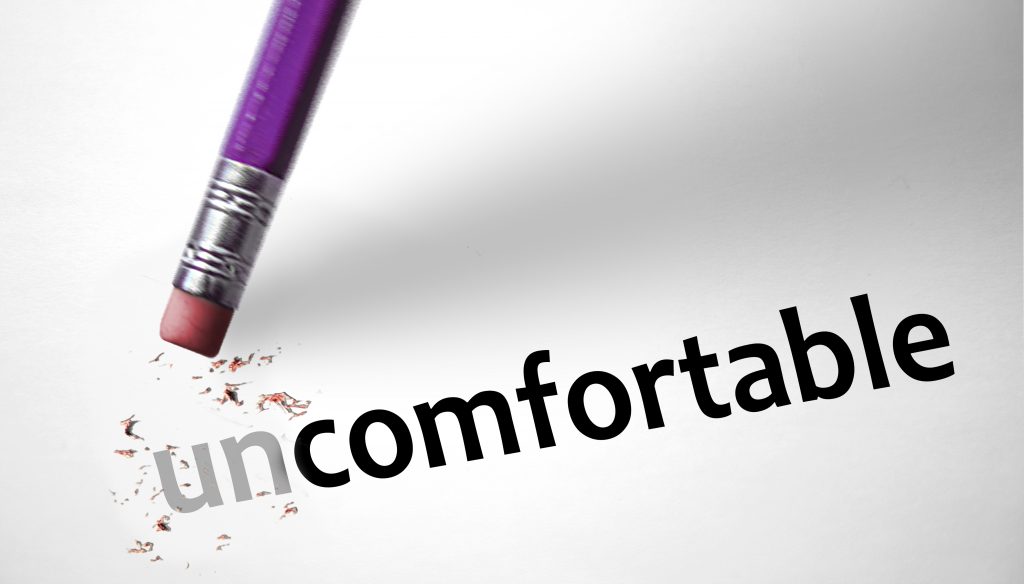
Business Presentations are filled with paradoxes, especially where executive charisma is concerned.
For instance, the Power Zone of presentation charisma . . . a place everyone wants to be, but where almost no one wants to go.
The charisma factor of executive presence is not so difficult to achieve, nor is it so mysterious as to be unfathomable.
Yet It always amazes me anew the reasons people concoct for not becoming powerful speakers and developing especially powerful executive presence.
The Power Zone of Executive Presence
The Power Zone is a metaphor for that realm of especially powerful business presenters, a place where everyone is a capable, confident, and competent communicator.
Where every meal’s a feast and every speech kissed by rhetorical magic.
A place for larger-than-life presentation charisma.
A place where executive presence comes naturally.
Yes, you can go there. And almost everyone claims they want to go to the Power Zone.
But even when people are told clearly how to reach the Power Zone of Presentation Charisma, most don’t go.
They find an excuse not to.
Disbelief . . . Principle . . . Ideology . . . Sloth . . . Disregard . . . Fear . . . even Anger.
They contrive the darnedest reasons not to, from ideological to lazy.
No Argument Here . . . Don’t go
In my presentations to various audiences, I am sometimes faced with the gadfly who knows better, sometimes vocal, oftentimes not. The person who opposes what I say. Usually for spurious reasons.
And it’s an exercise in futility for the gadfly. I make no argument against the gadfly’s objections, whatever the source.
Because the choice to enter the Power Zone is personal and completely optional.
You need not step into the Power Zone if you choose not to. I care not for the reason. Explanations aren’t necessary.
Presentation charisma is yours for the taking. It’s entirely up to you.
Ideological Objections to Charisma

The latest batch of objections I heard sprang from one woman’s ideology.
You heard right.
She apparently believed in au courant social theory that dictates how people should behave and react to others based on . . .
Well, based on what she believed to be right and proper.
Or what ought to be right and proper.
In short, rather than communicate with people in the most effective way possible, she wanted to do something else.
And if the audience doesn’t like it? Well, she’d then lecture her audience on why they’re wrong if they don’t like her way of presenting, whether based on appearance, voice, gestures, or movement.
She wanted to deliver presentations her way.
She wanted to blame her audience if they didn’t respond with accolades. More . . . she wanted my affirmation that this was okay, too.
Just different.
That it was just a “different” way of presenting, if not altogether superior.
She complained that my presentation of techniques, skills, and principles that build presentation charisma “sounds like it’s from 100 years ago.”
And I say praise the Lord for that.
Charisma from 25 centuries of Practice
I draw on 2,500 years of presentation wisdom of Presentation Masters like Aristotle, Demosthenes, Cicero, Quintilian, Webster, Bryant, and Roosevelt, so I’m not doing my job well if it sounds otherwise.
The woman in question complained that the gestures seemed “too masculine.” She would feel “uncomfortable” doing them as she believed they don’t look “feminine.”
I replied to her this way . . .
Don’t do it.
Just don’t.
“Don’t do them. Don’t gesture this way. Don’t do anything that makes you feel ‘uncomfortable.’ Don’t utilize gestures proven 100,000 times to be powerful and effective. Go ahead, substitute what you know to be better. Do exactly what you have been doing all along, and emerge from this lecture hall not having been changed one iota. Not having learned a damned thing. And then . . . you can wonder at why you have’t improved. At all.”
But if you choose to go that route, do it with the full knowledge that you leave the competitive advantage you might gain just sitting on the playing field.
It’s there for someone else to pick up.
Believe me, they will.
And all the ideology in the world cannot change that.
The principles of building charisma are gender neutral, and some folks have problems with that. Too bad. That’s how it is.
Consult Alix Rister for a female perspective . . . that is to say, a professional perspective on how to build presentation charisma and executive presence.
Your Comfort is Irrelevant to Charisma
Comfort? You don’t feel “comfortable” utilizing certain gestures?
Since when did our “comfort” become the sine qua non of everything we try? Who cooked this “comfort” thing up?
When did it gain currency?
Has any greater cop-out ever been devised?
Of course you don’t feel “comfortable” doing something you’ve never tried before.
A baby feels anything but comfort as it springs from the womb and is forced to breathe air instead of amniotic fluid. When it faces the cold of a delivery room.
A child feels anything but comfort as he learns the periodic table and the multiplication table. Or riding a bike or a new sport or meets new people and is forced to hear contrary opinions.
An athlete feels discomfort as she trains to develop skill, power, speed, and strength in the gym so as to perform at a superior level.
Does it feel “comfortable” to push forward and extend our capabilities into new and desirable areas?
You think developing Executive Presence and Charisma is easy and that you ought to wear it comfortably from the first minute?
It’s often a difficult process. But we certainly don’t accept “discomfort” as a reason not to do something necessary to achieve a goal.
“I just don’t feel comfortable.”
Of course you don’t feel “comfortable” speaking before a group if you’ve never done it before or done so with no success.
Of course you don’t feel “comfortable” acting in charismatic ways. Speaking with presentation charisma. That’s the whole point of especially powerful presenting – expanding the speaker’s comfort zone to encompass powerful communication techniques that lift you into the upper echelon of business presenters.
 And drawing upon 25 Centuries of wisdom and practice to do so.
And drawing upon 25 Centuries of wisdom and practice to do so.
But some folks scoff at this. It requires too much of them.
Or it conflicts with the way they think the world ought to work. Or the Seven Secrets for Especially Powerful Presenting aren’t mystical enough for them.
Secrets ought to be . . . well, they ought to have something akin to magic sparkles, right?
You may find this somehow unsatisfactory and unsatisfying or in conflict with your own ideology or philosophy. If you believe the answer should somehow be more mystical or revelatory or tied to the high-tech promises of our brave new world, then I say this to you: “Go forth and don’t use these techniques.”
Don’t fume over this or that nettlesome detail. It’s completely unnecessary. No need to argue about anything.
No one compels you to do anything here.
And this is what is so infuriating for the habitual naysayers – complete freedom. The freedom not to travel into the Power Zone of Presentation Charisma and Executive Presence.
I show you the way to the Power Zone, where you can be one of the exceptional few who excels in incredible fashion . . . but you can choose not to go.
If not, good luck and Godspeed with your own opinions and philosophies and endless search for presentation excellence located somewhere else. Let 1,000 presentation flowers bloom!
But if you elect to draw upon the best that the Presentation Masters have to offer, then I offer congratulations as you step onto the path to Presentation Charisma. The path toward that rarefied world of especially powerful Executive Presence and personal competitive advantage.
For more on how to develop especially powerful executive presence, consult The Complete Guide to Business School Presenting.
Related
Looking For Powerpoint Design Agency?
Call Pursho @ 0731-6725516
Telegram Group One Must Follow :
For Startups: https://t.me/daily_business_reads
#Charisma #Business #School #Presentations






